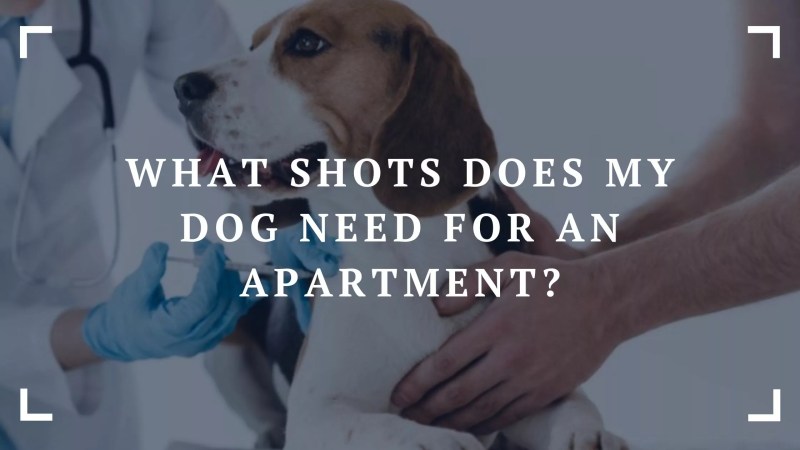Where Can I Get My Dog Shots At Near Me – The following vaccination guidelines for the UC Davis Veterinary Hospital are based on published research and task force recommendations. These include the AAFP/AFM Advisory Panel on Feline Vaccines, the AAHA Task Force on Canine Vaccines, and the World Small Animal Veterinary Association, which includes representatives from academia, the private sector, government regulators, and industry. These groups evaluated the benefits and risks of vaccines on the market. Interested readers are referred to documents published by these groups for more information (see bibliography and references at the end of this document). The following document was prepared by a group of UC Davis School of Veterinary Medicine faculty and staff for the education of veterinary students and as a reference for veterinarians. These are general guidelines only. The recommended types of vaccines and the frequency of vaccinations vary depending on the lifestyle of the vaccinated animal (e.g. pets indoors or outdoors, travel schedule, boarding/boarding schedule, and underlying medical conditions such as systemic diseases immunity or pre-existing infections such as FIV). ). Because these factors may change over time, we recommend that the owner develop a vaccination schedule for each pet separately during routine annual examinations, after a discussion between the veterinarian and the client about the pet’s lifestyle for the coming year. adjust Animal shelter vaccination guidelines can be found on the UC Davis Center for Companion Animal Shelter Medicine website. Each animal’s history of post-vaccination reactions also affects vaccination recommendations. For all injected vaccines, the product, expiration date, batch number, route and site of injection should be recorded in the protocol.
It should also be noted that determining the optimal recommendations for dog and cat vaccination requires many studies in the field of companion animal vaccinology. This document will be continuously updated and revised as more research is conducted and new vaccines come to market.
Where Can I Get My Dog Shots At Near Me

Primary vaccination is recommended for all puppies and dogs with unknown vaccination history. These diseases have significant morbidity and mortality and are widespread. In general, vaccination provides relatively good protection against disease. These vaccines include canine parvovirus (CPV), canine distemper virus (CDV), canine adenovirus (CAV) and rabies vaccines. Additionally, the leptospirosis vaccine is currently recommended as the primary vaccine for dogs in California because the disease can occur in any dog (including dogs in urban environments), can be life-threatening, and vaccines are safe and effective in are considered With recent advances in safety over the past decade.
Puppy Vaccine Guide: Shot Schedules, List Of Vaccines & More
For primary vaccination of puppies (less than 16 weeks of age), one dose of modified live virus (MLV) CPV, CDV, and CAV-2 vaccine is recommended every 3-4 weeks from 6 to 8 weeks of age with a final booster dose. to be It is prescribed in the first week of 16. For dogs over 16 weeks of age, it is recommended to administer two doses of modified live virus vaccine (MLV) containing CPV, CDV and CAV-2 at an interval of 3-4 weeks. After revaccination at 6 months to 1 year of age, revaccination every 3 years is recommended, preferably with a product approved for administration beyond 3 years, unless there are special circumstances that require more or less justification. for frequent revaccination. It should be noted that the recommendations for killed parvovirus vaccines and recombinant CDV vaccines are different from the above. These vaccines are not currently available in our pharmaceutical department and are not routinely used at the UC Davis Veterinary Hospital. We do not recommend vaccination with CAV-1 vaccines because CAV-2 vaccination confers immunity against CAV-1 and the use of CAV-2 vaccines results in fewer side effects.
California law recommends that puppies receive a dose of rabies vaccine at 12 weeks of age or 3 months of age. Adult dogs with unknown vaccination history should also receive a single dose of rabies vaccine. Revaccination is necessary after one year. After that, you should be vaccinated against rabies every three years with an approved vaccine for three years.
Several leptospiral serotypes can cause disease in dogs, and each serotype confers only minimal cross-protection. Currently available vaccines do not cover all serotypes, and the duration of immunity is likely to be approximately one year. However, leptospirosis is not uncommon in Northern California dogs, both in urban yard dogs and in dogs with a history of contact with farm animals and areas inhabited by wild mammals. In addition, the disease may be fatal or have high morbidity and may also have a potential for zoonotic transmission. Therefore, we recommend that all dogs be vaccinated annually with vaccines containing all four leptospira serotypes (gripotiphosa, pomona, canicula, and ictrohemorrhagia). The first vaccination should be given two to four weeks later with a booster dose and the first vaccination should not be given earlier than 12 weeks. In general, leptospira vaccines have been associated with more severe vaccine reactions (acute anaphylaxis) than other vaccines. The recent introduction of vaccines containing small amounts of foreign proteins has reduced this problem. Although the rate of reaction with Leptospira-containing vaccines is higher than with non-leptospira-containing vaccines, the incidence remains low (<0.6% in one study). If possible, avoid vaccinating dogs that have previously responded to a Leptospira vaccine. UC Davis Veterinary Hospital does not recommend administering different vaccine antigens at different times because it reduces the chance of vaccine administration and there is little evidence that it reduces the risk of a reaction.
Non-nuclear vaccines are optional vaccines that should be considered based on the animal’s risk of exposure, i.e. based on the animal’s geographic distribution and lifestyle. Some diseases that do occur often go away on their own or respond well to treatment. Vaccines that are considered additional vaccines include canine parainfluenza virus (CPiV), canine influenza virus H3N8, canine influenza virus H3N2, combined distemper-measles vaccine, Bordetella bronchiseptica, and Borrelia burgdorferi. Vaccination with these vaccines is usually less effective in protecting against disease than vaccination with primary vaccines.
Puppy & Dog Vaccinations
Both of these pathogens are associated with “kennel cough” or canine infectious respiratory disease syndrome (CIRDC) in dogs. In the case of Bordetella bronchiseptica, mucosal vaccination with live, non-linear bacteria is recommended in dogs that are to be kept, exhibited or housed within 6 months of vaccination. We currently offer an intranasal vaccine containing B. bronchiseptica and CPiV. For previously unvaccinated puppies and dogs, only one dose of this vaccine is needed (different recommendations apply for the cultured form of this vaccine). Most farms require this vaccine to be administered within 6 months of boarding. For maximum effect, the vaccine should be injected at least one week before the expected date. Although some farms require vaccination every six months, an annual booster with B. bronchiseptica vaccine is considered sufficient to provide protection.
The H3N8 canine influenza virus appeared in the United States in 2003 in greyhounds in Florida. The virus is now present in many dog populations in Colorado, Florida, Pennsylvania, New Jersey and New York. This virus causes upper respiratory tract symptoms such as cough, runny nose and mild fever followed by recovery. A small percentage of dogs show more severe symptoms associated with hemorrhagic pneumonia. The H3N2 canine influenza virus emerged in Illinois in 2015 and spread to several other states, including California. A few sick dogs have recently (December 2017 / January 2018) been identified in the South Bay area of northern California. Disease caused by CIV H3N2 may be slightly more severe than CIV H3N8, and the virus affects more dogs in veterinary clinics and the community (H3N8 is found mainly in animal shelters). Vaccines against both infections are available, including the combined H3N8/H3N2 vaccine. In Northern California, administration of the H3N2 vaccine may be necessary for dogs that come into contact with other dogs, such as those that are ridden. Vaccines may reduce clinical signs and virus shedding in CIV-infected dogs. Vaccination may potentially affect the results of serological tests, which are useful in supporting diagnosis in non-endemic areas.
This vaccine was used from 4 to 12 weeks of age to protect dogs against distemper in the presence of maternal antibodies to CDV. Protection occurs within 72 hours after vaccination. Only suitable for use in homes/kennels/shelters where CDV is a known problem. Only one dose of the vaccine should be injected. The puppies are then given a CDV booster to minimize the transmission of maternal measles virus antibodies to the next generation of puppies. UC Davis Veterinary Hospital does not offer this vaccine because situations that require its use are not common in our hospital population.

The incidence of Lyme disease in California is currently considered very low. Furthermore, the use of the vaccine is controversial even in endemic areas (such as the East Coast of the United States) due to isolated reports of vaccine-related adverse events. Most infected dogs show no clinical signs, and most dogs with Lyme disease respond to antimicrobial therapy. In addition, effective prevention can be achieved by avoiding exposure to the tick vector. When traveling to endemic areas (eg the East)
Dog Vaccinations Cost: What You’ll Pay
Where can i get my cat shots near me, where can i get my dog shots, get my dog shots near me, where can my puppy get shots near me, where can i get shots for my puppy near me, where to get parvo shots near me, dog shots near me, where to get dog shots near me, where can i get my dog shots near me, dog flu shots near me, where can i get my puppy shots near me, mobile dog shots near me

